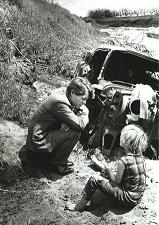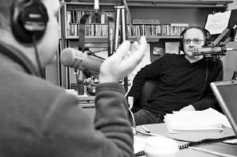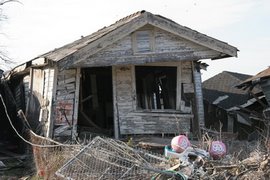 [I am committed to parlaying a lifetime of community building and social entrepreneurship into assisting the incoming Obama administration, 'Half in Ten' and associated groups in their efforts to cut US poverty in half within ten years. Hence, this letter to Lisa Donner, Executive Director of 'Half in Ten.' Any reader who has suggestions or contacts that might help me with my social ambition is encouraged to send me feedback!]
[I am committed to parlaying a lifetime of community building and social entrepreneurship into assisting the incoming Obama administration, 'Half in Ten' and associated groups in their efforts to cut US poverty in half within ten years. Hence, this letter to Lisa Donner, Executive Director of 'Half in Ten.' Any reader who has suggestions or contacts that might help me with my social ambition is encouraged to send me feedback!]
"Dear Lisa,
Why am I writing to you? Because you are the
Executive Director of the
Half in Ten campaign. And because I am a successful community builder and a proven social entrepreneur. I want to help you, your partner organizations and the new President work to halve poverty in the next ten years. But I need your help (and theirs) in working out the best way I can help.
As a starting point, I attach my Resume to indicate what I have to offer. I see several possibilities, which I set out below, and I hope that you (and others receiving a copy of this e-mail) may be able to find the time to review those with me.
My focal issue is that I am a problem-solver, rather than a theorist or ideologue. I want to do what I can to assist in ensuring that, alongside the many good folks and institutions that already exist to advocate policy on how to cure the causes of poverty in the US, there is a complementary effort to tackle the immediate symptoms of poverty, and that that effort is driven as much as possible by pragmatic policy-making based on real grassroots experience.
As I say, I am writing to you in the first instance in your role as Executive Director of
Half in Ten. It may well be that you say there is someone more appropriate with whom I can exchange. And for that reason, I have copied this e-mail to a few other people. But you seemed to me to be the best starting point!
I know this may all seem a little presumptuous, but I am one who believes that, sometimes, the only way to help solve a problem is to be direct and persistent, while remaining charming and respectful, but always a passionate advocate - even when it is advocating me! So, please forgive my forwardness. I feel strongly about this.
Why now? As you will already know, Melody Barnes, President-elect Obama’s choice for director of his Domestic Policy Council, recently delivered a keynote address at a national board meeting of the Leadership Conference on Civil Rights in which she affirmed the new administration’s commitment to cut poverty in half.
Even if the speech had not been made, it is well known that tackling poverty will be a major commitment of the new administration. What that means is that there may soon be a rapidly-formed and major effort, quite bluntly, to direct a lot of money at the problem of poverty in the US.
This promises to be one of the largest programs of its kind since the days of FDR. There is a little by way of modern template. A lot of policy regarding implementation of the program is very likely going to be made on the hoof. I would suggest that it's going to need a whole team of committed and proven grassroots community builders, who listen, learn and are not afraid to make decisions, when there is either too much or too little information available on the ground.
While the potential availability of new money and drive is to be welcomed, you will know better than I that there are inherent dangers. Much of the work with hunger and homelessness is currently being undertaken at the grassroots level by tightly-knit networks of established non-profits.
Sure, they need money. But I think that the distribution of that money - to them and to individual applicants - needs to be handled with sensitivity, so as not to upset the inter-relationships that already exist; to ensure that the funds are directed in the most effective and efficient manner; to respect the dignity of the recipients; and so as not to impose upon the grassroots volunteers a bureaucratic mentality which they may not understand, and which could stymie their best efforts.
In other words, and in my opinion, I would hope that there will be as much emphasis on policy-making from the ground up, as from the top down. And that there will be active efforts to enroll experienced community builders to act as a buffer between government and the non-profits.
In-the-field development troubleshooters who, on the on hand, know how to talk to those in need and those helping them on the ground, without talking down to them, and who, on the other hand, have experience in translating grassroots experience upwards into regional and national strategy, and who are comfortable addressing Washington policy groups such as yours. Frankly, values-driven professionals like me.
Why me? I have been a community builder since I was 16 years of age. I have an extensive background in social entrepreneurship at the grassroots level. And I have spent more than my fair share of time making and advocating policy in regional and national circles.
In 2005, I researched and presented a four-part radio series on the subject of alleviating the immediate symptoms of poverty. That effort led to
FOCUS On Poverty,which I spent much of the ensuing three years advocating to various groups (including yours and the Center for American Progress) and the Presidential Campaigns of John Edwards (whose national campaign headquarters were just across the road from where I work in Chapel Hill) and
Barack Obama.
I am committed now to devoting the next four to eight years of my life to doing what I can to help you, your colleagues and the Obama Administration reach the goal of halving poverty levels in the US, with, as I say, an especial focus on alleviating the immediate symptoms, and supporting (or building) the structures and processes that can assist in ensuring there is solid input from grassroots policy-making, and the wisest distribution of assistance to the existing efforts on the ground.
It may well be that what I am describing already exists, with a team of people like me committed to the same ideals and goals. In which case, please just point me in the right direction!
Alternatively, these may be ideas that are under consideration, in which case I would be delighted if you (and others receiving copies of this e-mail) could perhaps begin with me a conversation that might lead to some enactment that could include me, and other grassroots experts like me.
What are my options?
1) Approach the Obama Administration direct. Already done. I have completed the online job application, and left a note on Change.gov with
a few ideas about an anti-poverty approach at the grassroots level.
One of my primary concerns is the dignity of potential recipients. I know of many families in the Appalachians who struggle to make ends meet. They are certainly eligible for assistance. They are primary targets for existing and new anti-poverty programs. But they are too proud to admit the fact.
They would never own to needing help. Indeed, they have a universally dim view of charity and liberals. And even though they know in their hearts no Republican will ever help them, they consistently vote Republican because they don't trust politicians who assume they know what is best for them and appear to be out of touch. Plus, they need to keep up appearances.
Any effort seriously to reduce poverty is going to need to be able to employ language, processes and structures which respect these grassroots practicalities and accommodate this and similar cultural mindsets - and that, in turn, could well require consensus builders like me, who are comfortable negotiating with peoples of all sorts of different social backgrounds.
Anything that you or others can do to help my efforts in these regards, and with the Obama Administration, would be much appreciated.
2) Find room on the bus with you or your partner organizations. Indeed, I noticed that the
Center for American Progress is looking for a
Director of its Poverty and Prosperity Program. While I admire the work of CAP, and feel that I am qualified for the position, I am, quite honestly, not looking to spend as much time in Washington as the job description seems to suggest.
I recognize that the work of the Director, as described, has an important support function in filtering, co-ordinating and consolidating disparate ideas before they reach the Obama administration itself. Indeed, I would see participation by grassroots policy-makers in such work by the CAP as an important part of keeping government strategy relevant. But I'm not sure it's the direction I would wish for myself at the moment. Not as a daily occupation.
I'm looking to spend more time on the front lines of social instability. So, I would prefer to be out in the field, talking with grassroots people and organizations, confirming what works and what doesn't, and determining real needs. Only then would I want to feed upwards into policy-making circles (in Washington and elsewhere), and subsequently, helping with the effort to distribute downwards.
If my reading of the job description in question is wrong, or if CAP (or one of its partner organizations in
Half in Ten) is looking to open up a position as I have described it, then I would immediately be interested.
3) Create my own effort, with help from the likes of your organization, its partners and the Obama Administration.
Now, while I have a healthy regard for the talents I have been given, and the experience I have gathered, I like to think I'm also sufficiently self-aware to know my limitations.
I'm not going to pretend I have all the answers. My greatest ongoing development project is myself. I am always listening and learning. In that regard, it might be presumptuous for me to talk about setting up an entity, which may well be duplicating what is already being done, and could be stepping on toes.
That is why I have been sharing these particular thoughts with colleagues who specialize in the raising and distribution of funds for non-profits.
My preliminary thoughts run along the lines of setting up a small team which would assist targeted areas. Immediately, I am looking at the network of non-profits working to alleviate homelessness and hunger in Raleigh and Durham, in North Carolina.
What I envisage is liaising closely with those organizations, agreeing their needs, and then, through existing contacts, establishing direct relationships with small donor foundations around the country.
In this way, I would hope to create personal and ongoing partnerships between foundations who have money to give but no capacity to research appropriate recipients, and deserving anti-poverty causes, who are unable to sustain their own sufficient fund-raising efforts.
In due course, I would see this initial effort possibly expanding into a people and web-driven clearing house, marrying private and public money, through a knowledgeable clearing process and structure, with the enormous but disparate grassroots anti-poverty effort, in a fashion that does not interfere with that effort on the ground.
As I say, these are early thoughts. But, as with so much that I anticipate will be happening in the coming months, a lot is going to be needed to be put together in a short time period. I'm trying to do my bit to respond as quickly and as effectively as I can. And that means that much is still on the drawing board! And again, I would be grateful for any advice, support and assistance that you and others could give to this effort, if this is believed to be a useful way forward for me.
I want to help. I hope you can help me. I thank you for taking the time to read this far. And I truly hope this e-mail will lead to fruitful progress. I look forward to your response. Happy New Year!
All the best,
(Peter Geoff
Gilson)"
 My concern, now that we have earmarked multiple trillions of the public purse to bailing out banks and building bridges, is that we will have squeezed the money available to meet the goal established by Barack's new Domestic Policy Council Director, Melody Barnes, to cut poverty in the US in half within 10 years.
My concern, now that we have earmarked multiple trillions of the public purse to bailing out banks and building bridges, is that we will have squeezed the money available to meet the goal established by Barack's new Domestic Policy Council Director, Melody Barnes, to cut poverty in the US in half within 10 years.


























